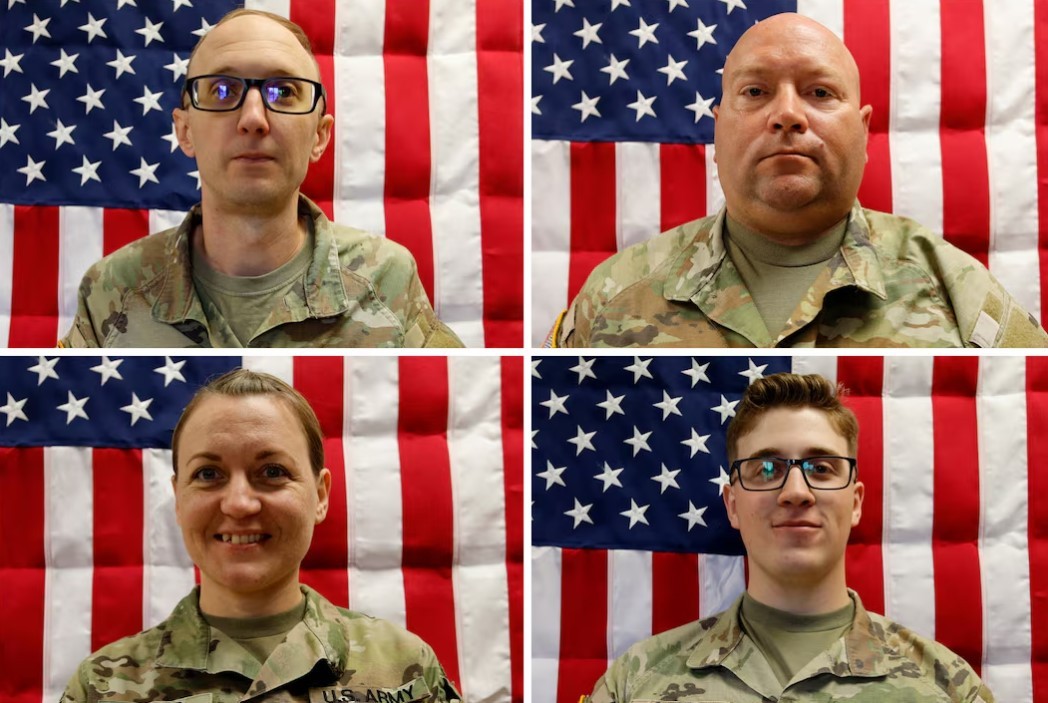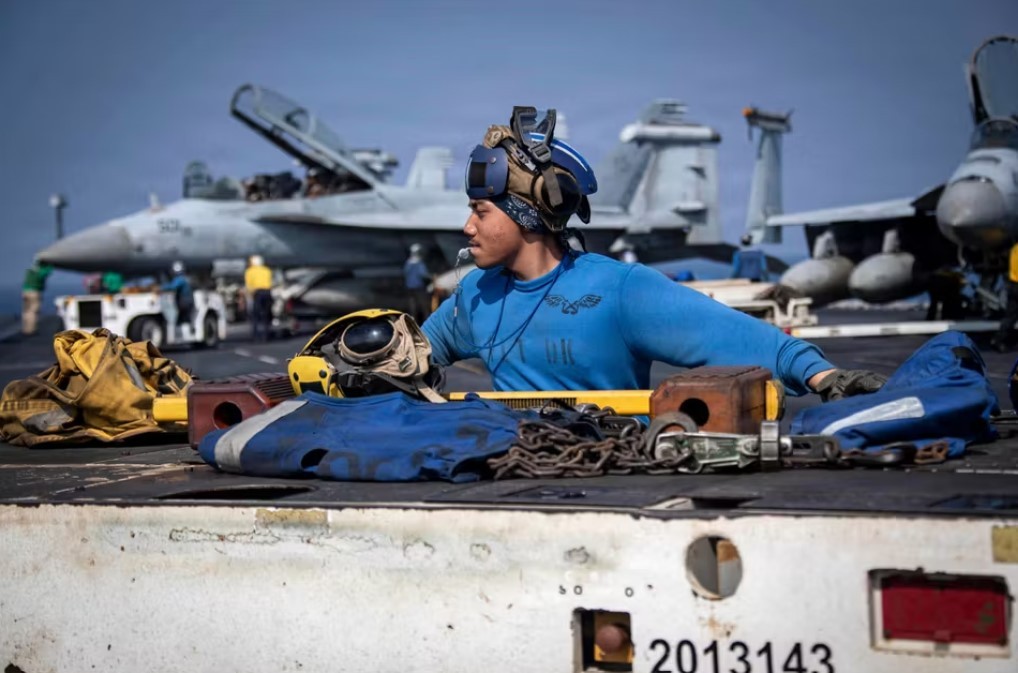Why Southwest Airlines Bans Portable Chargers in Carry-On Bags (New 2025 Rule Explained)
 A Student’s Guide to Pack Everything in a Carry-on A Student’s Guide to Pack Everything in a Carry-on |
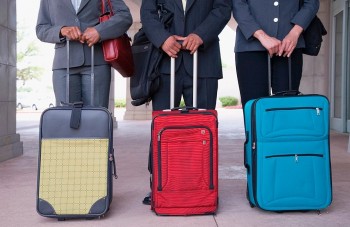 Airlines in Canada: Prohibited/Restricted Items on Domestic Flights, And Exceptions Airlines in Canada: Prohibited/Restricted Items on Domestic Flights, And Exceptions |
While travelers can still bring power banks on board, they must be turned off and kept visible at all times. This proactive move goes beyond FAA guidelines, aiming to address the increasing number of in-flight lithium battery fires. Here’s everything you need to know—why the policy was implemented, how it affects travelers, and what steps you should take to stay compliant and safe.
Read more: Step-by-Step Guide to Online Check-In with Southwest Airlines in 2025
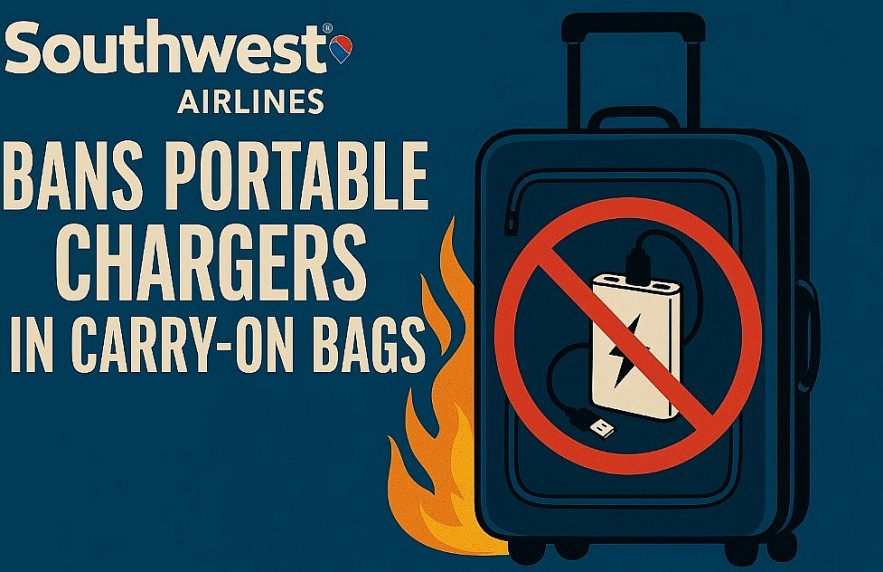 |
| Southwest Airlines Portable Charger Policy |
What Is Southwest Airlines’ New Rule on Portable Chargers?
Southwest Airlines is now the first U.S. carrier to prohibit the use of portable chargers inside carry-on bags during flight. Passengers may still bring these devices onboard, but:
-
They must remain powered off if stored.
-
They must be placed in visible locations, such as tray tables or seat pockets, when in use.
-
Charging devices inside bags or overhead bins is strictly forbidden.
The policy is effective as of May 28, 2025, and was created to reduce the risk of lithium-ion battery fires onboard.
Why Are Power Banks a Safety Risk?
At the heart of this policy is the safety risk posed by lithium-ion batteries, commonly found in:
-
Power banks
-
Smartphones
-
Tablets and laptops
-
Wireless headphones
-
E-cigarettes
These batteries can overheat and enter thermal runaway—a dangerous chain reaction where temperature and pressure spike uncontrollably, releasing flammable gases. This can lead to smoke, fire, or even explosions, especially in a pressurized aircraft cabin.
FAA data shows over 620 battery-related fire incidents on U.S. flights since 2006. Of those, 240 involved portable battery packs specifically.
Video - Southwest Airlines passenger punches flight attendant, knocking out 2 teeth:
How Does Southwest's Rule Go Beyond FAA and TSA Guidelines?
Both the FAA and TSA already ban lithium batteries from checked baggage, but allow them in carry-on luggage. However, these agencies don’t require the batteries to be visible or powered off.
Southwest Airlines is stepping ahead by enforcing:
-
Mandatory visibility of all power banks during use
-
Strictly no charging while inside any bag
-
Immediate accessibility for crew to respond to potential overheating events
This aligns with international precedents: Air Busan, Singapore Airlines, and Qantas have adopted similar measures after lithium-related fires.
Real Incidents That Sparked Stricter Policies
The rise in battery fires is not theoretical—it’s happening more often and more dangerously:
-
March 2025 – A laptop battery ignited mid-flight on Southwest, causing minor injuries and cabin smoke.
-
April 2025 – A power bank exploded on an American Airlines flight, prompting an emergency landing.
-
January 2025 – A phone caught fire on a United Airlines plane; flight attendants used a thermal containment bag to avoid escalation.
In 2024 alone, the FAA recorded 81 battery-related events, averaging 1.6 incidents per week.
What Passengers Need to Do
To comply with Southwest’s updated portable charger policy:
-
Use power banks only when placed in seat pockets or tray tables
-
Turn them off if storing in any type of bag
-
Do not charge any device from a power bank inside a bag or overhead bin
-
Do not hide power banks under seats or in closed compartments
These rules apply across all flights and may be enforced with gate announcements, cabin crew instructions, and visual checks.
Industry Trends: A New Normal for Air Travel?
Southwest Airlines isn’t alone in tightening rules on personal electronic devices. Other carriers have followed suit after dramatic incidents:
-
Air Busan saw a power bank-triggered fire onboard in early 2025
-
Singapore Airlines warns passengers not to use power banks while in bags
-
Qantas enforces battery device checks before boarding
As airlines grapple with the rising threat of tech-related onboard fires, the industry is shifting from passive rules to proactive prevention.
FAQs: Southwest Airlines Portable Charger Policy
Q: Can I bring a portable charger on a Southwest flight?
Yes. You may carry power banks in your carry-on luggage, but not in checked bags.
Q: Can I use my power bank during the flight?
Yes, but only if it is placed visibly on a tray table or seat pocket. It cannot be charging while inside a bag.
Q: Why can’t I keep it in my backpack while charging my phone?
If a battery overheats inside a bag, it may go unnoticed—delaying emergency response. Visibility allows fast action.
Q: Is this policy permanent?
Southwest has not announced an end date. The policy is in place indefinitely and may influence other airlines.
Q: Will TSA enforce this policy at security checkpoints?
TSA checks for prohibited items, but enforcement of this rule primarily happens at the gate and during flight by Southwest staff.
Final Takeaway
As the number of lithium-ion battery fires continues to rise, Southwest Airlines' portable charger policy is a clear signal that safety now takes precedence over convenience. Travelers should adjust how they carry and use electronics onboard. It’s a small change that could prevent a major in-flight emergency.
By understanding and following these guidelines, passengers not only comply with airline policy—they contribute to a safer sky for all.
 Alaska Airlines Flight Attendant Subdues Unruly Passenger Assaulting Woman - Viral Video Alaska Airlines Flight Attendant Subdues Unruly Passenger Assaulting Woman - Viral Video An Alaska Airlines flight attendant intervened decisively to protect a female passenger from an unruly man aboard Flight 2221 from Oakland, California, to Portland, Oregon, ... |
 What is the Stroopwafel Snack on United Airlines? What is the Stroopwafel Snack on United Airlines? United Airlines has reintroduced the beloved Dutch treat, the stroopwafel, as a complimentary snack option in its Economy class on flights over 300 miles, effective ... |
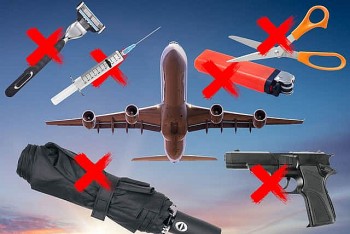 Banned Items on UK Domestic Flights and Their Exceptions Explained Banned Items on UK Domestic Flights and Their Exceptions Explained UK domestic flights have strict rules on what you can carry. Learn the full list of banned and restricted items, key exceptions, and priority guidelines ... |
 Top 10 Largest AirLines in the U.K by Passenger Numbers (2025) Top 10 Largest AirLines in the U.K by Passenger Numbers (2025) The United Kingdom, strategically positioned as a key gateway for transatlantic travel, stands out as one of Europe's busiest and most dynamic aviation markets. In ... |
 Top 10 Longest Flights in the World (2025) with The Unique Top 10 Longest Flights in the World (2025) with The Unique Distance, Duration, Aircraft, Airlines, and What Makes Them Unique |



